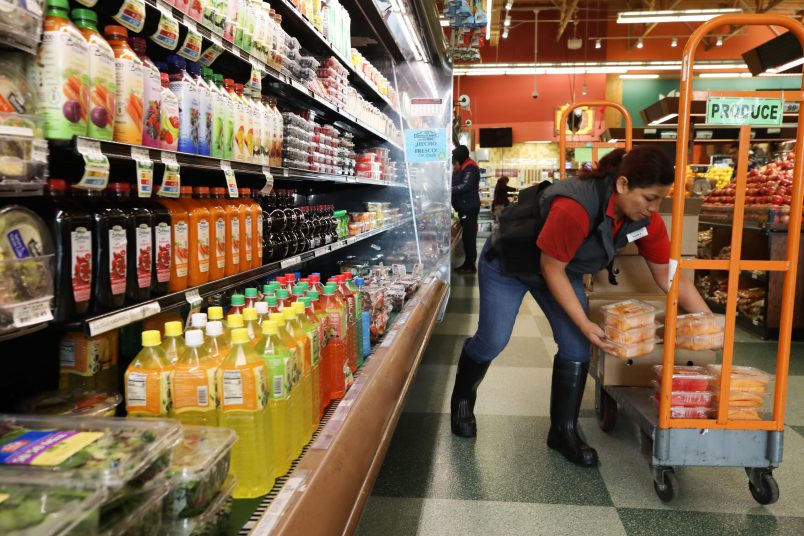I just saw this comment from my friend Chris Hayes …
My unified theory of American social and political life is that we’ve lived through and are living through a once-in-a-century trauma/disruption and the results of that are going to revereberate throughout almost every facet of politics for a while.
I agree with this, with this additional and I believe critical fact: the pandemic hit during a period of intense social and political turbulence and instability in the United States. Not only Trump’s presidency, the escalation of destabilizing actions during his presidency but remember that the pandemic struck within days of the end of the President’s impeachment trial.
What made me write about this was people responding that the nearest analogue was 9/11. And this is certainly true is far as it goes. Twenty years on we are only now pealing back many of the layers of the impact of 9/11. The US withdrawal from Afghanistan is one benchmark. But 9/11 was the dominant force in American politics for at least a decade and has continued to reverberate since. But what is notable about 9/11 and a helpful point of distinction to the COVID Pandemic is just how limited was the impact of the event itself on American life.
The reactions to the event are another matter entirely. But consider the event itself. Of course, almost three thousand people died. It had a major economic impact on the Greater New York City region. It had hard to calculate impacts on Americans’ feelings of safety in their own country. It changed the nature of air travel. It led to a dramatic military mobilization and multi-year occupations of two countries almost on the other side of the world.
But these were the reactions. And even with this the impact on the average person’s life was quite limited. Flying changed. But only a very small percentage of the population flies more than a few times a year at most. Even at that the change was more hassle than anything else. For members of the military the change was vast. But as we know that’s only a very small slice of the overall population.
Here the impact of the COVID Pandemic comes through in its sheer magnitude and intimate reach. It is no exaggeration to say that the daily life of literally every American changed dramatically and immediately. And much of those changes continue. We all know about masks, hand-washing, the ambient fear of infection, how whole domains of socialization ended or dramatically constricted. Most schools were closed for more than a year. There was large scale unemployment, dramatically changed work place mores, whole segments of the economy (though mostly the affluent and educated) moving to work from home. And here I haven’t even touched on the fact that by the end of this probably a million people will have died.
Few of these changes capture a heroic and ideologically-charged narrative in the way that 9/11 did. There are no stories about global crusades, seeing the face of evil or long twilight ideological struglges. But the impact on the most intimate and pervasive parts of life are incalculably larger. Most people can tune out politics and news from abroad or even news altogether. But no one can escape from the daily patterns of work, the ways we interact with other people, or feelings of fear or vulnerability that stalk us through the day.
These all suggest that the impact of the COVID Pandemic will not only be long-lasting but likely show most in ways now only barely visible to us. The so-called ‘great resignation’ is a key example. There are all sorts of theories about why so many people are quitting their jobs. There’s at least some evidence that it’s concentrated in a relatively small number of states. But we don’t really know. All we know is that fate picked up the world like it was one of those Christmas Snow Globes, shook it hard and that afterwards things weren’t at all the same. What about inflation? Well, we know we had a global shipping system that was engineered to have very little slack or resiliency in it (just in time production and shipping) and it’s struggled to bounce back from the shock. But people are also buying more stuff. Do they have more money because of forced delays in consumption (lockdowns) or COVID relief checks? Probably. But much of this also seem tied to different consumer desires based on radically different life experiences.
Today we’re talking about inflation, ‘labor shortages’ which really seem to be code for people unwilling to work for pre-Pandemic wages and other issues that are immediate and often viewed through a short-term electoral prism. But we should have in the backs of our minds that we’re seeing shifts in mass behavior that at present we don’t really understand or understand only in the most limited ways. Social cataclysms of such duration that reach so deeply into everyone’s lives never fail to have transformative consequences that reach far into the future. This must be even more the case when they hit a society already in the midst of great social stress and instability.






